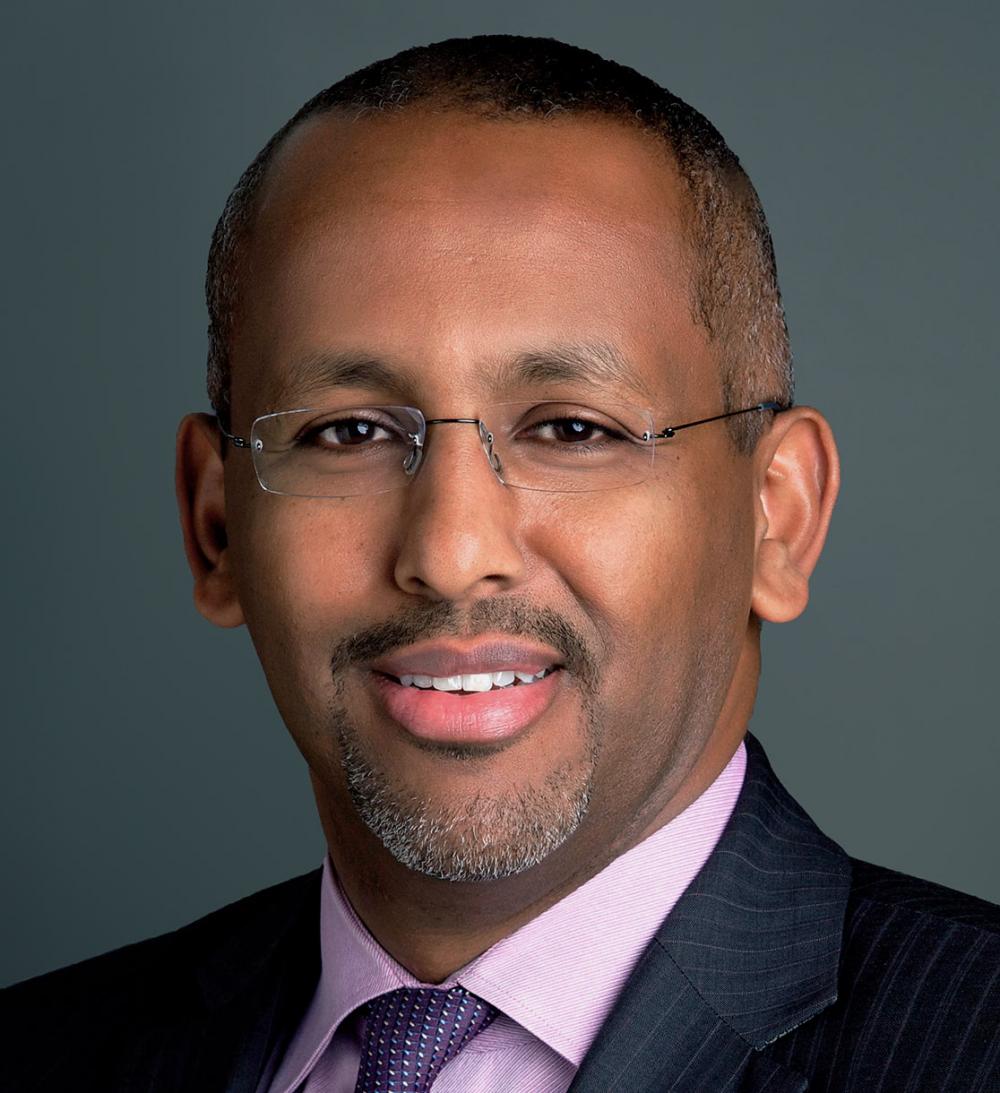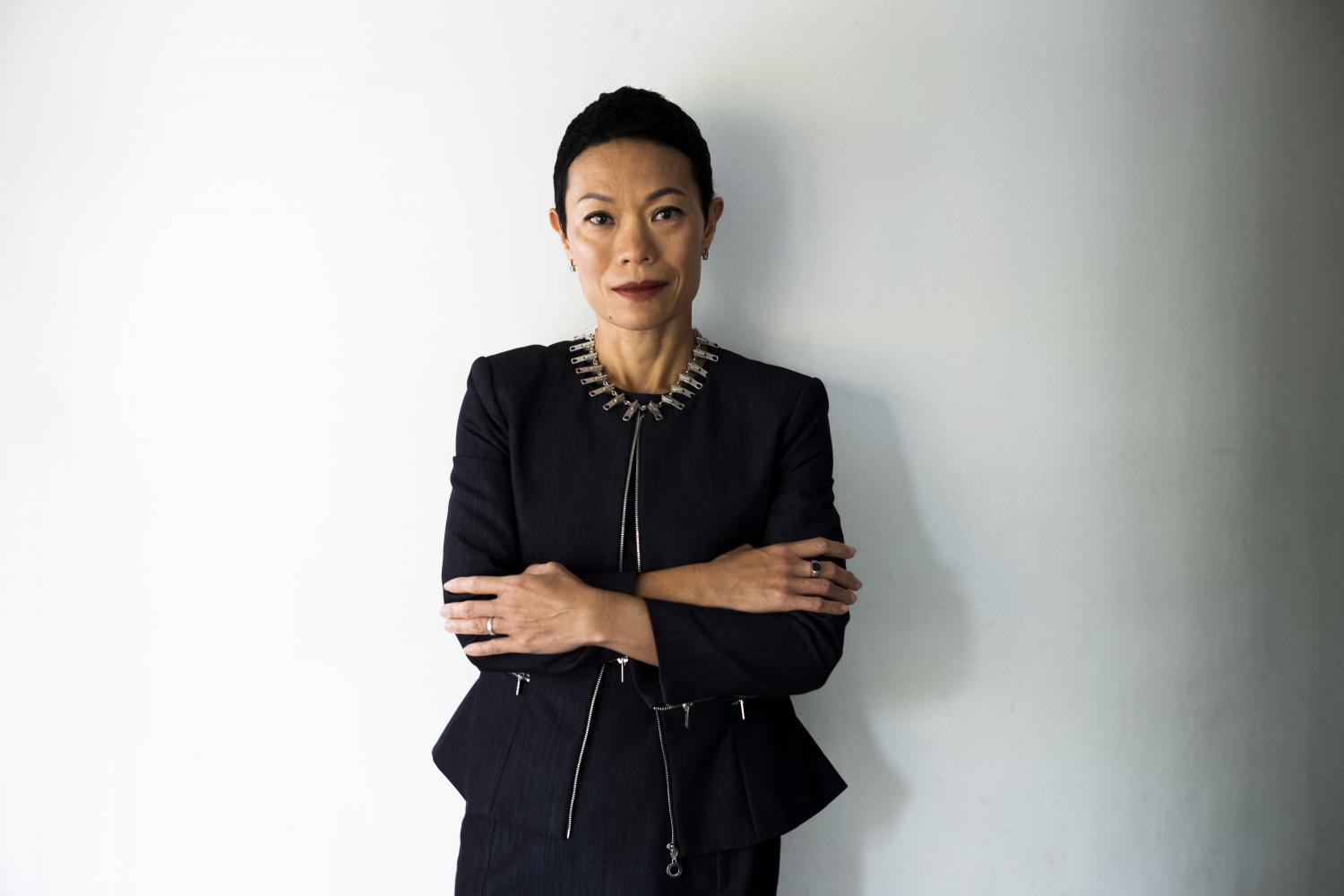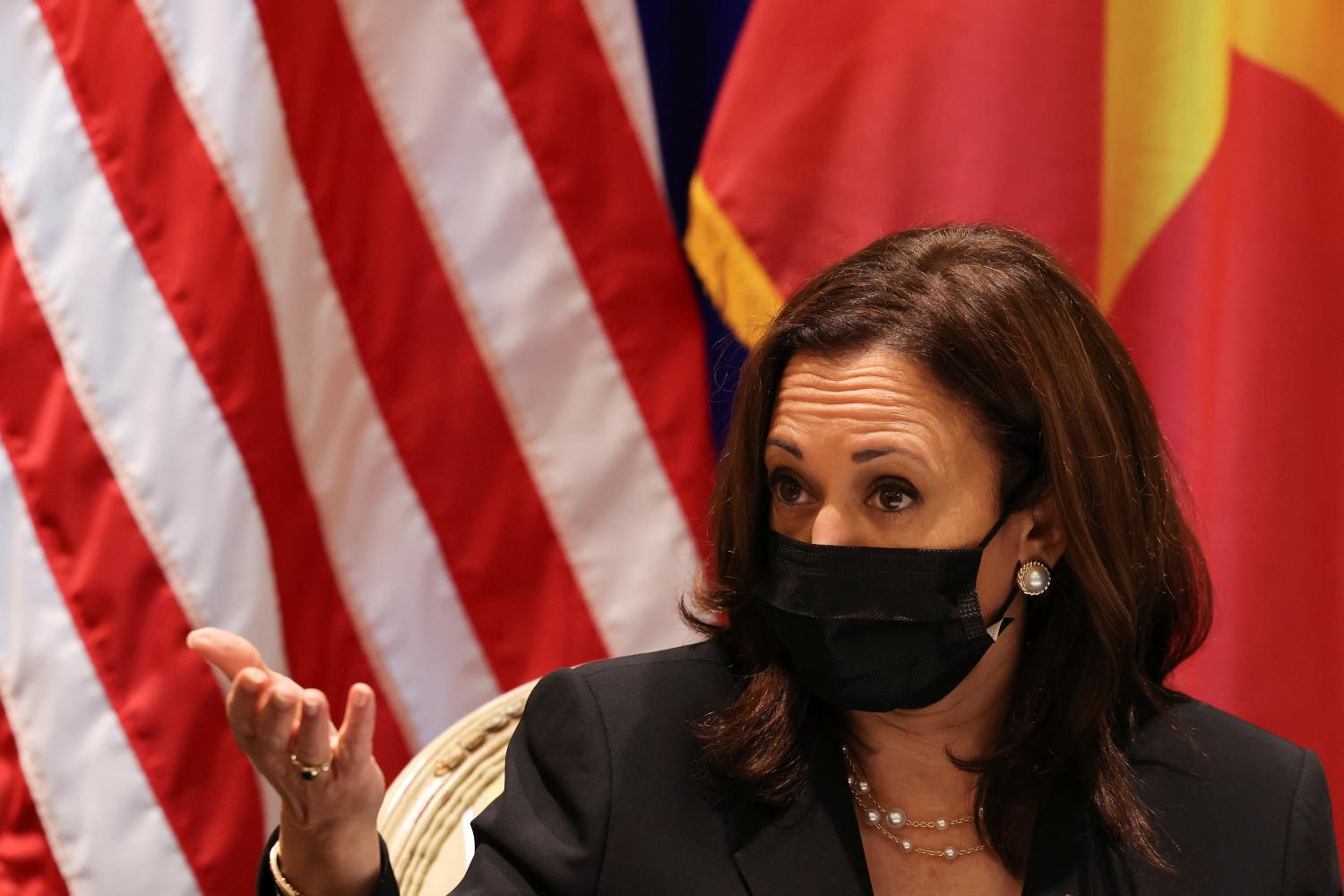
The pandemic has been causing many parts of the world to drift away from each other amid distancing and lockdowns, but the US-Asean relationship is bucking the trend.
The relationship that began with the formation of Asean more than five decades ago has since expanded into multifaceted partnerships across strategic, economic and social dimensions. The bond has been growing stronger ever since the regional financial crisis up to the present pandemic era.
In 1997-98, Washington's focus was on playing a leading role in the bailout of slumping economies in Southeast Asia and beyond. Lately, donations of vaccines and other pandemic-related assistance have been part of a new diplomatic push. America raised its profile further with the visit last week by Vice President Kamala Harris to Singapore and Vietnam.
"(Former president Barack) Obama 'got' Asean. Trump never did," said Simon Tay, chairman of the Singapore Institute of International Affairs (SIIA). "Ms Harris's maiden visit to Asia, and her choice of Singapore and Vietnam are to signal that the current administration understands the region's importance.
"Notwithstanding the rise of the Quadrilateral Security Dialogue -- commonly known as the Quad -- the growing cooperation among Australia, India, Japan and the US, there is recognition that Asean is essential and central to the wider region. The China-America competition is another reason to engage Asean directly," he told Asia Focus.
The US and Asean are also addressing newer issues that have become highly relevant, such as cybersecurity and climate, as areas for further cooperation.
America must be part of the digital economy in the region, particularly through future discussions about how to set standards to ensure security and privacy, Prof Tay added.
Pavida Pananond, a professor of international business at Thammasat University, believes the most crucial aspect of the US-Asean relationship is China and its role in the region. This covers traditional security issues, especially in the South China Sea, as well as non-traditional ones such as supply chain resilience and public health.

It's time for another US-Asean economic forum similar to the one held during the Obama administration, says Barbara Weisel, managing director of Rock Creek Global Advisors. (Photo: Dupont Photographers)
The choice of Singapore and Vietnam as the destinations for Vice President Harris reflected their respective roles. The former is the regional headquarters for almost all US multinationals that are active in the region.
"If supply chain resilience in the region is now in the US's economic interest, Singapore is the location where commercial strategic decisions are made whereas Vietnam has become a key manufacturing hub in many sectors, particularly electronics," Dr Pavida pointed out.
Some in Thailand questioned why the region's second largest economy, also a major export-led manufacturer, was not on the itinerary. They were also disappointed that the US Centers for Disease Control and Prevention (CDC) chose Hanoi and not Bangkok as the location for its new regional office. That reflects more on Thailand than the other way round, in Dr Pavida's view.
Asean has a combined gross domestic product (GDP) of US$3.2 trillion and has been the third fastest-growing economy in the Indo-Pacific region in the past decade, after China and India, according to Asean Matters for America/America Matters for Asean, published by the East-West Center, US-Asean Business Council and the ISEAS-Yusof Ishak Institute in Singapore.
The Asean economy is projected to grow by over 5.5% annually and to pass India and Japan to become the fourth largest in the world by 2030.
Despite the challenges of the Covid outbreak, Asean remains America's number one destination for investment in the Indo-Pacific region, said Alexander Feldman, president and chief executive officer of the US-Asean Business Council.
Foreign direct investment from the US has reached $338 billion in Asean, exceeding its total in China, India, Japan and South Korea combined, he added.
Exports of American-made goods and services to Asean were worth $122 billion, making the region America's fourth largest market after Canada, Mexico and China.
US direct investment in Asean accounts for over one-third of US investment in the entire Indo-Pacific region. Asean nations have invested over $24.9 billion in the US, led by Singapore ($21 billion) and Thailand ($2 billion).
American support helped to bring free trade and investment into Southeast Asia along with peace, stability and prosperity, said Ashok Mirpuri, Singapore's ambassador to the US in Washington at a recent virtual forum to launch the fifth edition of Asean Matters for America/America Matters for Asean.
"The whole region has been a beneficiary of US engagement with the region," he said, adding that Covid vaccines are the latest evidence of that support. "Once we get out of the pandemic, the US should work with the region in setting standards for cybersecurity and the digital economy."
Another urgent concern is climate change. Southeast Asian countries are more vulnerable than most and without immediate action, they are going to lose ground, said Mr Mirpuri.
Asean needs to raise about $3 trillion by 2030 if it wants to meet its ambitious commitments under the Paris Agreement on climate change. However, only $40 billion in annual financing was achieved in 2019, according to the publication.

HEALTH IS WEALTH
The pandemic has also underscored how vital health is to shared economic prosperity, said Dorthe Mikkelsen, president for Asia Pacific of the American pharmaceutical company MSD.
According to the US Department of State, the US has provided 23 million vaccine doses and over $158 million in emergency health and humanitarian assistance to Myanmar, Cambodia, Indonesia, Laos, Malaysia, the Philippines, Thailand and Vietnam to fight Covid and is committed to a comprehensive set of actions to end the global pandemic in 2022.
The Covid assistance is part of some $3.5 billion worth of funding that Washington has committed to supporting public health in Asean over the past 20 years, according to the East-West Center.
The US-Asean Health Futures initiative, launched in 2019, aims to promote joint health research, increase capacity across the region and develop the next generation of human capital in the healthcare field. The US, through USAID, has invested $16 million in the One Health Workforce-Next Generation programme to build a stronger health workforce across the region.
The two sides have joined forces on more than 1,000 research projects over the past decade, involving Asean member states and over 20 institutes at the US National Institutes of Health.

"It is important that we continue to see governments make digital skills a priority in their economic recovery plans," says Karan Bhatia, vice-president of public policy with Google.
As future pandemics could be more frequent and deadly, each country needs to take urgent global investments in the healthcare sector into account, said Ms Mikkelsen.
This priority was highlighted at a meeting of G20 finance ministers and central bank governors in July. Participants called for $75 billion in investment over the next five years to combat future pandemics. Failing to prepare could end up costing governments 700 times more than what had been proposed, she added.
"Health spending is not a cost, it's an investment because health is the key to the wealth of a country," said Ms Mikkelsen.
She cited research by McKinsey and Co, showing that reducing the global disease burden can add $12 trillion to global GDP by 2040 with a return of one to four dollars on every dollar invested. Investing in improved health can play a very meaningful role in productivity, it noted.
Healthy people work longer and harder than sick people and countries that improve their citizens' health can grow faster.
"For more than a year into this pandemic, we've learned that health security is a matter of national economic importance and none of us are safe until all of us are safe," said Menassie Taddese, president for emerging markets of the global healthcare company Viatris.

POST-PANDEMIC COOPERATION
Economic engagement is one of the pivotal priorities to foster positive relationships between Asean and the US, said Steve Chabot, US Representative for the first congressional district in Ohio.
Trade will be essential to the recovery as the world economy starts opening up further after the pandemic, he said.
"The pandemic has taught us that we cannot be so reliant on China for so many manufactured goods and as we know they tried to corner the market when it came to personal protective equipment (PPE) and other critical supplies," he said. "As such, we need to build stronger trade relationships with nations that share our goals and principles and that should start with the members of Asean."
It would be really useful to convene a US-Asean economic forum similar to the one organised during the Obama administration, said Barbara Weisel, managing director at Rock Creek Global Advisors and a former assistant US trade representative for Southeast Asia and the Pacific.
Such an event, she said, could discuss new areas that could be worked on, particularly US-Asean digital trade agreements and digital governance issues.
The digital economy in Asean has been growing rapidly, with citizens' reliance on online services highlighted further during the pandemic.

"Health security is a matter of national economic importance and none of us are safe until all of us are safe," says Menassie Taddese, president of emerging markets with Viatris.
The value of the digital economy rose 5% to $105 billion in 2020, according to the e-Conomy SEA 2020 report by Bain & Company, Google and Temasek.
According to Asean Matters for America/America Matters for Asean, the digital economy in Asean is projected to surpass $300 billion by 2025, propelled by the rise of e-commerce, online marketplaces and ride-hailing apps, among others.
The world's fastest-growing internet market now has 915 million active mobile connections -- almost 1.5 times the Asean population. Over 120,000 entrepreneurs in Asean have received continuous support from the US government and businesses since 2011 through various programmes, such as the US-Asean Business Alliance for Competitive SMEs and the online Asean SME Academy.
Amid the challenges posed by the pandemic, digital commerce and the utility of the internet in people's lives have accelerated, said Karan Bhatia, vice-president of government affairs and public policy at Google.
Eight out of 10 people across Southeast Asia said that technology helped them get through the virus and nine out of 10 plan to keep using at least one digital service beyond the pandemic.
"What I would ask people to think about is what do we need to do to continue to drive this and make it sustainable," he said.
As the role of technology in Southeast Asia grows, the region has to equip people with growth and skills to navigate that digital economy, he added.
In Indonesia, for example, Google has partnered with major local tech companies this year, namely Gojek and Tokopedia to develop young digital talents.

"If supply chain resilience in the region is now in the US's economic interest, Singapore is the location where commercial strategic decisions are made" Pavida Pananond Professor of international business at Thammasat University (Photo: IOD)
The company has also been supporting the Asia Foundation to work with local nonprofits to help more than 200,000 small and medium-sized businesses, workers and underemployed young people get the skills that they need to digitise, said Mr Bhatia.
Supported by a $3.3-million grant from Google, the Go Digital Asean initiative focuses on closing the digital gap and broadening participation in the digital economy, with a special focus on people from rural regions and underserved communities to gain digital literacy skills and online safety awareness.
"It is exciting to see the momentum and important that we continue to see governments make digital skills a priority in their economic recovery plans going forward," he added.
Mr Bhatia also said a digital trade agreement between the US and like-minded countries in the region could help address this coordination challenge. It could also give governments the tools they need to effectively address issues in the digital sector while reinforcing durable trade principles like non-discriminatory national treatment and interoperability.

US Vice President Kamala Harris makes a point during a meeting with civil society representatives at the residence of the US Chief of Mission in Hanoi last Thursday. (Photo: REUTERS)